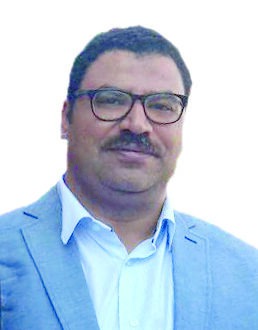Oil and food are arriving at the port of Hodeida. For the first time in six years, a commercial flight touched down at Sanaa International Airport.
Thanks to the truce offered by the Saudi-led coalition, the Yemeni people may see their food and fuel crises eased. The two-month truce – the most significant breakthrough in seven years of war – is also a golden opportunity to begin a political process to end the war in Yemen.
Such hopes are reinforced as Yemen’s president handed over his powers to a new leadership council tasked with peace talks with the rebels.
Since his appointment in 2012, President Abd-Rabbu Mansour Hadi has failed to impose his authority and unify the opponents of Houthis on one front.
The new leadership council has promised to end the war and bring peace through a process that guarantees the Yemeni people all its aspirations.
However, the Houthi rebels are reluctant to engage in any peace talks. They accuse Saudi Arabia of attempting to restructure the ranks of the Houthis’ opponents, pushing them towards further escalation. This is a red flag for the Houthis, who still have to accommodate the wishes of their mentors in Iran.
Several commentators see the Houthis’ acceptance of the truce as an attempt to relieve some of the crises they are facing now. They will be ready at any time soon to relaunch their attacks and reinforce their position on land when the chance is available.
This seems to be the hypothesis of the United States, which said last week it would set up a new task force with allied countries to patrol the Red Sea after a series of attacks attributed to Yemen’s Houthi rebels in the waterway that is essential to global trade.
The new task force, which came also in the wake of a series of Houthi missile and drone attacks this year on two Gulf countries, should impact the Houthis’ ability to obtain such weaponry, according to the US Navy command.
Still, the possibility of entering into a real peace process may depend on whether the new leadership council will be able to unify the ranks of the Yemeni people against the rebels. It may also depend on the successful prevention of fresh military gains by the Houthis.
The chance for fostering the peace process comes at a critical time for the Yemeni people, who, like many devastated nations, will suffer more as the Ukrainian crisis grips the attention of the world community and donors who used to support the poor nation over the past seven years.
The Ukrainian conflict maybe even more painful to Yemen which depends mainly on Ukraine for the grain imports to feed the 17 million people already on the brink of famine. The international community must not lose the chance again to put a lid on one of the world’s worst humanitarian crises, where more than 150,000 people are estimated to have been killed and millions displaced.






Discussion about this post